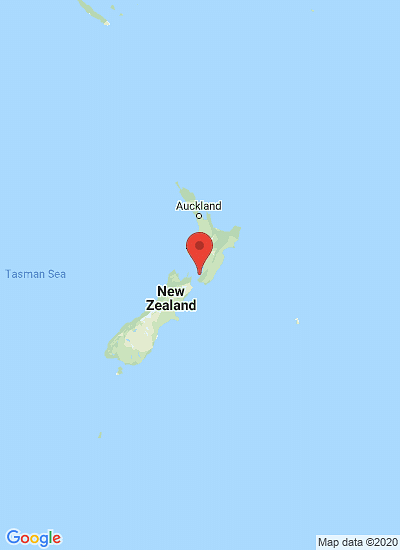Engineering project manager Lenard Smythe at McCain Foods (NZ) - Timaru( left) and plant manager Jordan Jurcina with wood chips that will be used to replace coal in their boilers.
McCain Foods (NZ) - Timaru is switching from coal to wood chips for its french fries

A NZD 5.6 million (about USD 3.5 million) project to eliminate CO2 emissions and reduce demand for heating fuel at McCain’s Timaru factory will soon use woodchips to make their frozen french fries (or hot chips as they are mostly called in New Zealand)
The company is converting its boiler from coal to domestically sourced woodchips, which will help McCain reduce its carbon emissions by approximately 30,000 tonnes per year as part of its objective to avoid coal use by 2025.
The Timaru plant’s manager Jordan Jurcina said this will be one project in a group of projects to reduce carbon emissions at McCain.
Jordan Jurcina:
"It's important to reduce the over all carbon footprint of the company. Once the project is commissioned next week, the Timaru branch will be the first carbon zero McCain plant in Australia and New Zealand."Jurcina said industries as a whole tend to shy away from environmental projects but the Timaru plant will be an example of how an environmental project will benefit businesses and communities. Jurcina also added that Timaru’s branch is also the first branch in Australia and New Zealand to convert from using coal to biomass.
The company’s engineering project manager Lenard Smythe said the initiative was a positive step forward and an opportunity for it to continue innovating to reduce its carbon footprint.

Lenard Smythe, left, says it is important for companies to take initiative and lead the way when it comes to climate action.
"It’s important for companies to take initiative and lead the way when it comes to climate action. It’s in our best interest to save our environment and continually improve our practices to reduce our impact in terms of emissions.The boiler conversion project is only one of many initiatives McCain is working on to achieve our sustainability targets."Successful trials began in May 2021 in line with the Energy Efficiency and Conservation Authority (EECA) requirements to prove the concept. The factory is also focused on recovering waste heat from the fryer for use elsewhere in the facility, which will further reduce total energy consumption by more than 37,000 GJ/year and reducing the fuel.

The factory is also focused on recovering waste heat from the fryer for use elsewhere in the facility.
Smythe said the total cost of the project is 5.6 m (about USD 3.5 m) with NZD 2.2 m (about USD 1,3 m) of that going towards converting the boilers to use woodchips as the new source of fuel and the rest will be used on recovering waste heat from the fryer. Smythe added their positive relationship with the Government on climate change has positioned them well to keep leading in the space.

Lenard Smythe, left, and Jordan Jurcina pictured with the pile of woodchips at McCain’s Timaru factory which will be used to power their boilers from next week.









